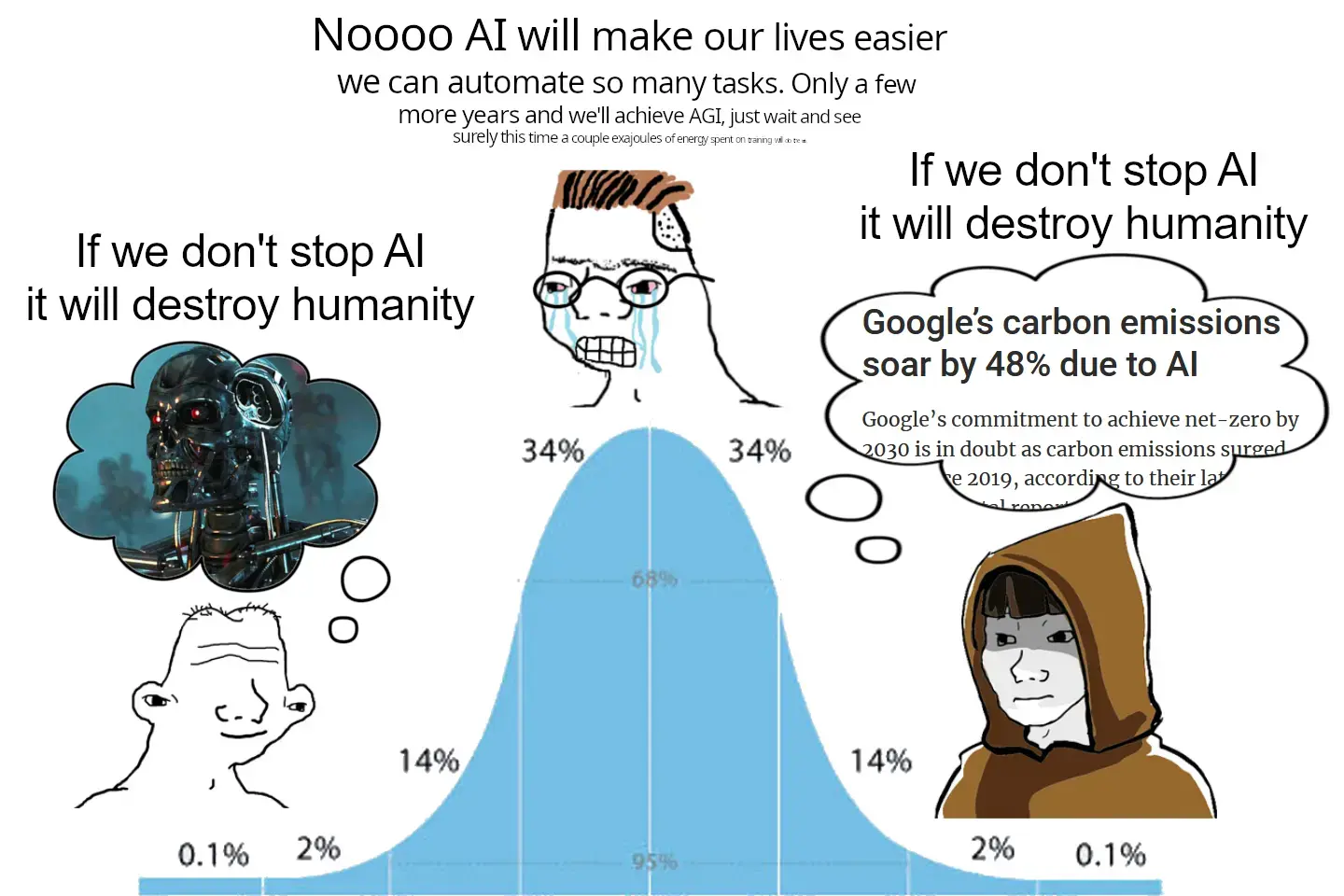this post was submitted on 05 Jul 2024
1070 points (95.3% liked)
Memes
50390 readers
771 users here now
Rules:
- Be civil and nice.
- Try not to excessively repost, as a rule of thumb, wait at least 2 months to do it if you have to.
founded 6 years ago
MODERATORS
you are viewing a single comment's thread
view the rest of the comments
view the rest of the comments

there's something's highly suspect about someone not understanding the difference between art made by a human being and some output spit out by a dumb pixel mixer. huge red flag imo.
and yes, the value does go. because we care about origin and intent. that's the whole point.
if the original Mona Lisa were to be sold for millions of dollars, and then someone reveals that it was not the original Mona Lisa but a replica made last week by some dude... do you think the buyer would just go "eh it looks close enough"? no they would sue the fuck out of the seller and guess what, the painting would not be worth millions anymore. it's the same painting. the value is changed. ART IS NOT A PRODUCT.
Translation. I can't argue your point so I'm going to try characters assassination.
Pretty ironic to say art is not a product and then argue that its monetary value would decrease, which can happen only if you treat art as a product.
Imagine if instead of a physical painting Mona Lisa was a digital file and free on the internet, would people think Mona Lisa is less impressive as an art piece because anyone could own it? I think it's artistic value wouldn't decrease, only its value as a product would decrease because everyone could get it for free.
it's not a product in the sense that its value does not come from its function, otherwise it would not lose value when it would be revealed to be of a different origin, but otherwise exactly the same. i spoke of the monetary value just because it's quantifiable; it's not otherwise relevant.
if Mona Lisa was free and digital it would be as valuable as a digital Mona Lisa could be. being free and digital doesn't make it pointless, without agency or intent like AI art is.
It seems like you're agreeing with me on the reasoning why AI art is art, you just refuse to accept AI as art. So let's try a different way. Who says art has agemcy or intent? Clearly it's not just "everything made by humans" because if I showed you the toilet paper I used to wipe my ass we can both agree that it's not art. Neither is the comment I'm writing right now. So there needs to be something more that separates not art and art. The two most common ways would be the intent of the artist and the perceived intent of the viewer.
If it's what the artist intended the am artist can prompt AI until AI generates the image the artist intended. Since the artist intended the AI generated image to look that way the intent is inherited from the artist.
If it's what the viewer perceived we can reach the original question I postulated. If an image makes you feel something and you can't know if it's made by the artist or by AI, how do you know it's art or not? If we take by whether you perceive intent of not then you're attributing intent to art and it doesn't matter how it was made. If you feel something and after the fact you find out it was AI generated image then it doesn't invalidate what you felt.
You can come up with whomever to validate intent or agency and I'll show you how AI wouldn't play a role in that decision because AI isn't sentient. It's a tool like a camera or a paint brush or just chalk. We give the intent by using the tools we have.